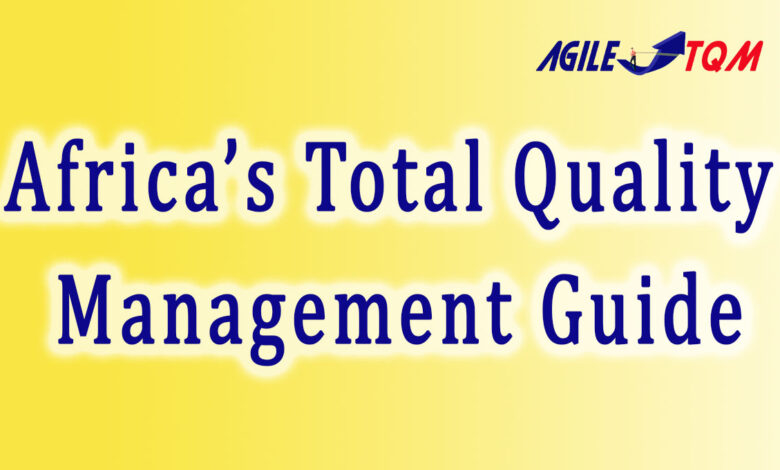Africa’s Total Quality Management Guide

Studies show many barriers to implement Total quality management in developing countries in Africa, (Kulemeka (2010), Kululanga and Kuotcha (2010), Dilawo and Salimi (2019)) list in their work the TQM inhibiting factors in the least developed countries being bureaucratic, government control, lack of competition, poor knowledge base, scarce capital, lack of foreign exchange and poor political environment. Moreover, the same authors noticed some efforts to apply TQM soft principles. Also, Vouzas and Psychogios (2007) classified TQM principles in two categories, soft principles and hard principles, as denoted in the table.
Table: TQM soft and hard principles. Source: Vouzas and Psychogios (2007).
| TQM soft principles | TQM hard principles |
|---|---|
| Employee participation | Statistical process control |
| Continuous improvement | Quality function deployment |
| Training | ISO standards |
| Teamwork | Pareto analysis |
| Top management support & commitment | Fishbone and PDCA |
| Customer focus | Histogram and process charts |
| Culture change | Critical path analysis |
Thus, TQM implementation in developing countries has been seen to fail, if implemented without taking into consideration the local aspects and the culture in the country where it is implemented, Psychogios (2010).
Dilawo and Salimi (2019) classified TQM barriers into three categories: Organisational, External stakeholders and Working environment.
Table: Barriers to TQM implementation in the least developed countries.
| Organisational | TQM barriers |
|---|---|
| Top management commitment | Measurement |
| Leadership | Resources |
| Quality assurance | Employee improvement |
| Strategic planning | Communication |
| Improvement | Training |
| Structure | Individual behaviour |
| External stakeholders | |
| Suppliers | Customers |
| Subcontractors | Client representatives |
| Working environment | |
| Business environment | Government system |
| Global occurrences | Culture |
| Local factors | Industry |
References
- Kulemeka P. (2010), “The Road Sector in Malawi” in “Proceeds of the 1st AFCAP practitioners conference: the roads sector in Malawi”, Addis Ababa, Ethiopia, pp. 1 –24


